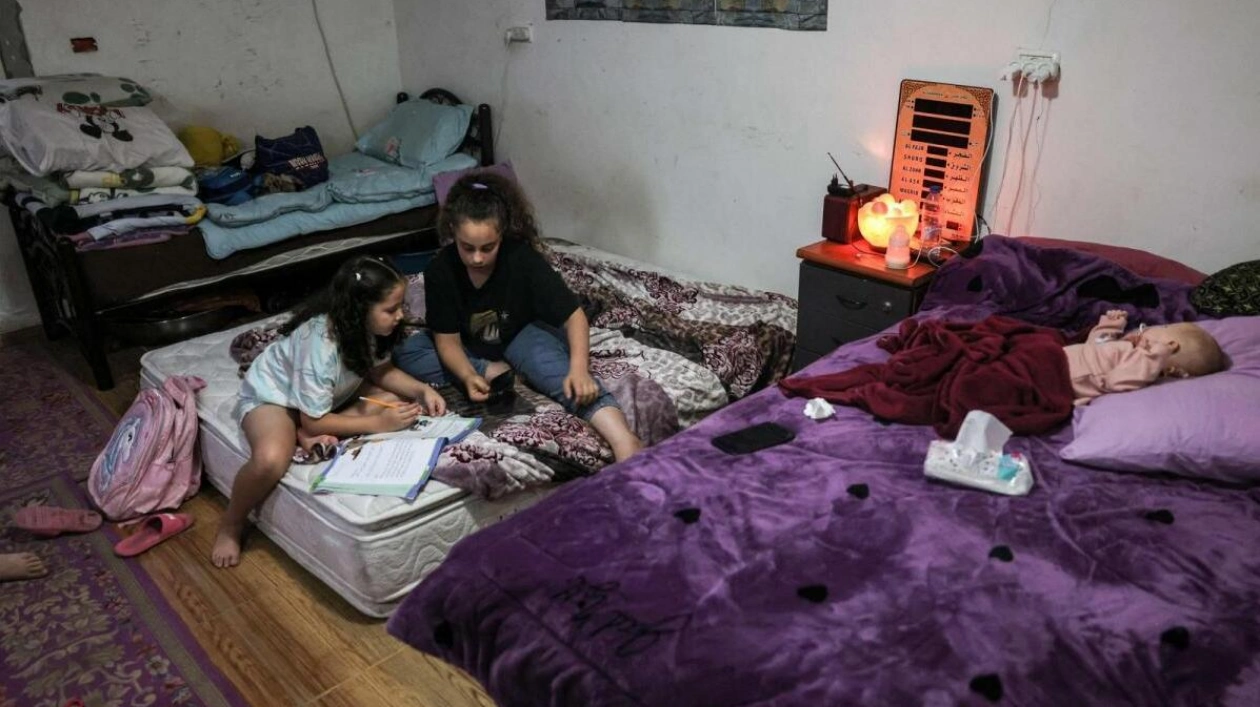Israel's conflict with Hezbollah took a terrifying turn on Wednesday for residents of Tel Aviv, as the Lebanese militia launched a ballistic missile aimed at their city. The early morning sirens at 6:30 am left little time for reaction.
"We hurried to the shelter downstairs, descending about three floors. It was, of course, very frightening," recounted Alon Neubach, who resides in a suburb of the Israeli commercial capital. Neubach's office is adjacent to the Mossad intelligence agency base, which Hezbollah claimed to have targeted with its missile, though the army reported it was intercepted.
"I'm more frightened by these rockets because I know they are more powerful and accurate," said the 41-year-old tech worker, comparing Hezbollah's arsenal to that of Hamas, its Iran-backed ally, which has been firing rockets towards Tel Aviv since the beginning of the war in Gaza on October 7. Despite this, Neubach expressed a sense of weariness, stating, "I'm kind of tired of being scared and stressed, so I'm just... doing what I'm doing"—and he proceeded to his office.
According to Israel's military, the surface-to-surface missile was the first ever fired by Hezbollah to reach Tel Aviv. Government spokesman David Mencer reported that millions of people had to seek refuge in bomb shelters, calling it "a Hezbollah long-range advanced missile fired indiscriminately towards millions of our people."
In Tel Aviv, many reacted similarly to Neubach—after the initial shock, life resumed as usual. Workers returned to their offices, beachgoers swam in the Mediterranean, and cafes filled up again. Noam Nadler, a 27-year-old law student, noted that while she is accustomed to rocket attacks from Lebanon in her northern Israeli hometown, rockets reaching the center of the state is "definitely scarier."
Magen David Adom, Israel's first responders, reported two people were wounded by shrapnel in the north on Wednesday, one seriously and one moderately. Nadler, like Neubach, sought shelter but also reflected on the situation, feeling that "it seems like it's before a bigger blow, so everything is a little more tense."
Hedva Fadlon, a 61-year-old retiree, expressed indifference to the origin of the rockets, stating, "We are used to it, whether it comes from the south or the north, it doesn't matter, rockets are still rockets." She emphasized that they are equally frightening and stressful, adding, "I don't think anyone in this world would like to live like this."
Wednesday marked the first time Hezbollah claimed a ballistic missile strike against Israel since its campaign began nearly a year ago in support of its Palestinian ally Hamas. The long-standing adversaries, Hezbollah and Israel, have been engaged in near-daily cross-border exchanges of fire since Hamas's attack on Israel last October 7.
In Safed, a northern Israeli city, Yuri Fligelman faced the reality of a Hezbollah attack when a rocket hit a neighbor's house on Wednesday morning, causing a tremendous explosion and fragments falling on his roof. Despite this, Fligelman declared, "I don't want to leave, I'm gonna fight the Hezbollah. Who else, if not us?"
Hamas's October 7 attack on Israel resulted in the deaths of 1,205 people, mostly civilians, according to an AFP tally based on Israeli official figures. Of the 251 hostages seized by militants, 97 are still held in Gaza, including 33 the Israeli military claims are dead. Israel's retaliatory military offensive has killed at least 41,495 people in Gaza, most of them civilians, according to data from the Hamas-run territory's health ministry, which the UN deems reliable.






